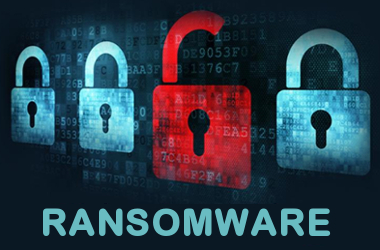Ransomware - Quick tips to protect yourself!

Ransomware – Quick tips to protect yourself!
The cyber security of more than 150 countries was compromised when a malware going by the name of Ransomware attacked over 200,000 computers. The new cyber enemy that spreads a virus called WannaCry or WanaCrypt is malicious in its own ways and encrypts the important files in the computer after which the user can only access one page that direct him to pay ransom money in terms of Bitcoin in order to get access back into the computer. There is no surety that the user will get back the files even after paying the ransom.
Origin:According to reports, the malware was stolen in April from NSA's stockpile of cyberweapons, spreads via e-mail, exploiting vulnerabilities in Microsoft operating systems to encrypt users' files and lock them out of their computers.
Ransom:Once a computer is affected by the virus, the only page accessible will be the one asking to pay an initial amount of $300 in bitcoin, with a threat to destroy the data if no payment is received within a given period of time. The malware also increases the fee after seven days if no payment is made.
Ways to avoid this malware:- Do not click on attachments, banners or link without being absolutely sure of their origin. Even if the advertisement or email attachment may look harmless, they can redirect you to a website that will download the virus.
- Do not install apps for mobile or computers from unknown sources. Official sources are the only ones that can keep you safe from malware. The verify source option should always be enabled and apps from known sources should only be downloaded.
- Do not trust warnings from random websites regarding security troubleshooting in your computer. Rely only on trusted antivirus programs to follow up on ways to remove malware or waste space in your computer.
- Do not download apps, programs, extensions, add-ons from unknown sources even if the website prompts you to do so in order to complete a download or any such re-direction. Do a quick security check on google to know if the download is authentic or contains malware.
- Do not make payments in haste to get back your files after it has been attacked with a Ransomware. If you make payments from an affected computer, it is likely to open windows of transaction through which your internet banking could be hacked. There is also rare chances that you will get your data back even after making the payment. You will be indirectly supporting cybercrime and financing their ill-motives.
Preventive measures:- Keep your software updated at all times. When there is a common threat lurking, Microsoft or any OS platform updates the software to enable them to stay protected from the threat. You will also be able to close the loophole which the hackers must be using to get into the computers.
- Invest in a good antivirus if your computer stores important data or is used regularly to connect to internet. It will be able to fight off common malware and also alert you if you try to access a website or download an application that comes from an unknown or suspicious source.
- Backup your important data regularly to make sure that you do not miss out on anything important even if your computer falls prey to one of these malware. Regularly backing up data is a good practice and should be enabled on all computers to remind you whenever required.
- Report malware or Ransomware when and if they demand a payment to the local police or cybercrime department in your area. They are experts in tracking the source and might also be able to help recover your data.
- Perform regular security scans through the inbuilt firewall or installed antivirus to make sure that they are working well and not expired.
Except for a few incidents in Kerala and Andhra Pradesh, India dodged the attack from this malicious malware since NIA had already implemented preventive measures starting from March when the attack was predicted. Nevertheless, we should remain cautious and inform the local police if the malware is detected in any computer.